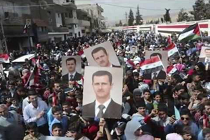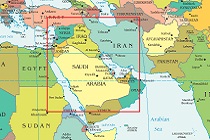Assad: baptism by a brutal ballot
Basher Assad has been voted to power in Syria in an election which is widely regarded as lacking legitimacy. This will be Assad’s third term in office and his victory is an indication of the control he continues to wield despite growing western backing of opposition groups











